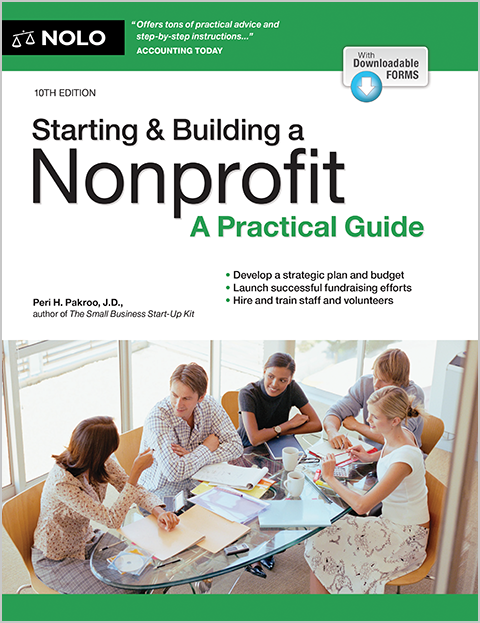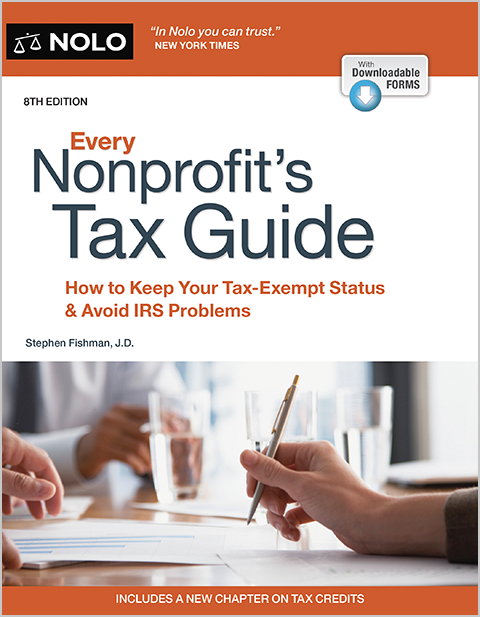The streamlined 1023-EZ can save small nonprofits time and money on the tax-exemption application process.
After you form a nonprofit organization, you can apply for 501(c)(3) tax-exempt status with the Internal Revenue Service. To initiate the process, most organizations must file Form 1023, Application for Recognition of Exemption Under Section 501(c)(3) of the Internal Revenue Code, or the streamlined Form 1023-EZ.
The 1023-EZ is a shorter and simpler form than the long-form application, but only small nonprofits that meet the IRS requirements can use it. If your organization isn't eligible to use the 1023-EZ, you will likely have to use the regular Form 1023 to obtain tax-exempt status.
What Is a 501(c)(3) Tax-Exempt Organization?
A 501(c)(3) organization is a nonprofit that the IRS recognizes as tax-exempt. Tax-exempt organizations avoid certain taxes, including federal corporate tax, and in some states, sales and property tax. In addition, donations made to exempt organizations are tax-deductible for the donor. To learn more, see How to Obtain 501(c)(3) Tax-Exempt Status for Your Nonprofit.
What Is the 1023-EZ Form?
The 1023-EZ is a streamlined version of the regular Form 1023. The filing fee is lower (as of May 2021, the fee is $275 for the 1023-EZ and $600 for the regular 1023). Plus, the IRS processes the EZ forms much faster than the regular form. Processing time for the long form can take six months or longer, while you will typically hear back on an EZ application in two to four weeks.
The 1023-EZ is shorter and easier to complete. By comparison, the long-form 1023 is 12 pages and includes eight sections. To complete the 1023, you must provide detailed narratives, financial information, and copies of the organization's formation documents, bylaws, conflict of interest policy, and financial records. In contrast, the 1023-EZ is only three pages, and instead of detailed narratives, you provide most of the information by checking boxes. You do not attach organizational documents to the EZ application.
Eligibility Requirements for All Exempt Organizations
All nonprofits must meet the following requirements to obtain 501(c)(3) status, regardless of which application they use:
- Exempt purpose. The organization must operate exclusively for a recognized "exempt purpose," which includes charitable, religious, educational, scientific, or literary purposes.
- No private inurement. The organization must use the nonprofit's money and assets for a public purpose, and not for the private gain of individuals.
- No political campaigning. The nonprofit can't engage in political campaigning (for more information, see this article)
- No substantial work on influencing legislation. The organization can't devote a substantial part of its activities to influencing legislation.
In your 1023 application, you must verify that your organization meets the above criteria.
Basic Eligibility Requirements for the 1023-EZ
To determine whether your organization is eligible to use the streamlined application, you can use the 1023-EZ eligibility worksheet. The basic requirements are as follows:
- gross income under $50,000 in the past 3 years
- estimated gross income less than $50,00 for the next 3 years
- fair market assets under $250,000
- formed in the United States
- mailing address in the United States
- organized as a corporation, unincorporated association, or a trust (can't be an LLC), and
- can't be a for-profit corporation, or a successor to a for-profit entity.
Limitations on Types of Organizations
Certain types of organizations cannot use the 990-EZ, even if they meet the basic qualifications. The following types of organizations typically must file the long-form 1023:
- churches and church associations (see How to Form a Religious Nonprofit Organization for more information)
- schools, colleges, and universities
- hospitals and medical research organizations
- agricultural research organizations
- charitable risk pools
- credit counseling institutions
- Health Maintenance Organizations (HMOs)
- public safety organizations, and
- private foundations.
If you are not sure whether your organization fits into one of the above categories, consult with an attorney.
How to File the 1023-EZ
The IRS accepts only electronic filings for the 1023-EZ. To start, you must set up an account on pay.gov, which is where you will complete the form and submit the filing fee. Refer to your organizational documents, such as your articles of incorporation and your bylaws, to fill in the details about your nonprofit. If you have questions about any part of the application, consult with an accountant or an attorney.
Processing times vary, but you can check the Where's My Application for Tax-Exempt Status page for an update, or contact the IRS to determine where your application is in the process.



